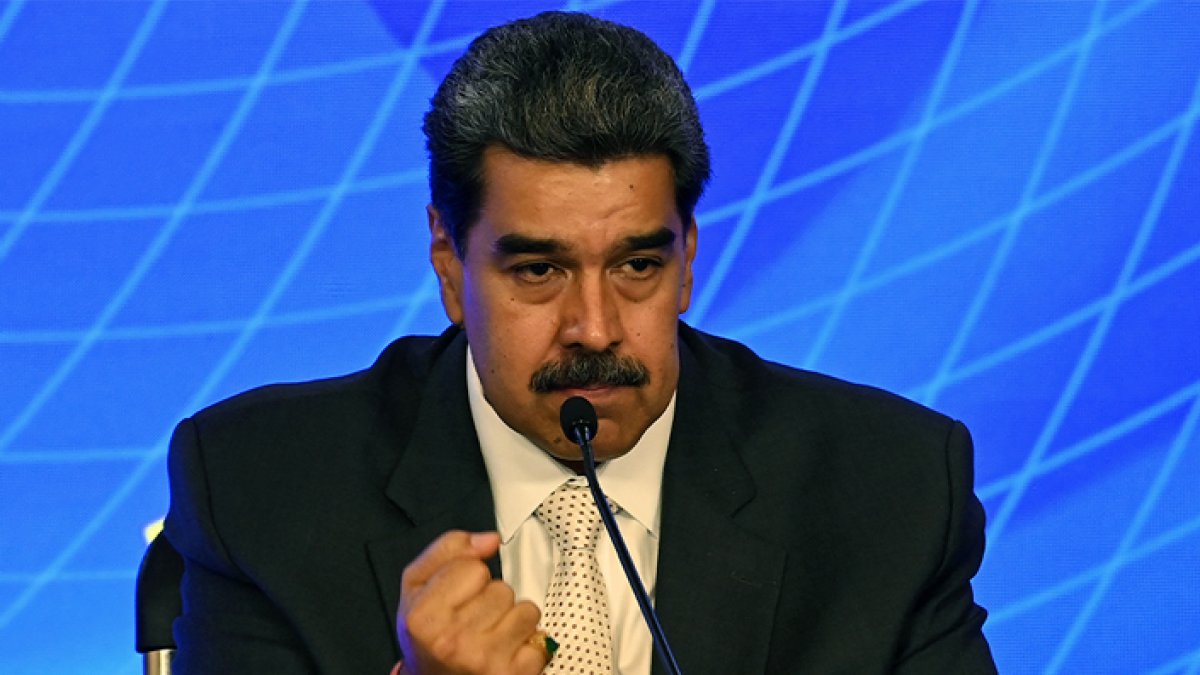U.S. reimposes sanctions on Venezuela and gives Venezuela until June to terminate existing oil agreements
The Treasury Department issued a new license granting a grace period for companies and banks to complete outstanding business with the country.

Nicolás Maduro (Yuri Cortez / AFP)
The United States announced the reinstatement of sanctions against the Venezuelan oil and gas industry after Nicolás Maduro failed to fulfill his commitment to hold free and fair presidential elections this year.
The State Department acknowledged that sanctions relief granted six months ago failed to induce Maduro to hold genuine elections. As a result, General License 44, which authorizes transactions related to oil and gas sector operations in Venezuela and expires on April 18, will not be renewed.
However, the Treasury Department issued a new license (G.L. 44A) that grants companies and banks a grace period of 45 days, until May 31, to complete pending business with Venezuela. In addition, U.S. oil giant Chevron will be allowed to continue hydrocarbon exploitation business with the Venezuelan state-owned oil company PDVSA.
"Leaving that license in place suggests the administration cares more about keeping oil prices down until the election, and about Chevron's profits, than about U.S. national security interests and freedom in Venezuela," said Elliott Abrams, the Trump administration's special envoy for the crisis in Venezuela.
Venezuela, once an oil powerhouse, has been hit hard in recent years, falling from nearly 2.9 million barrels per day in 2014 to less than 400,000 b/d in 2020. While there has been a modest recent recovery, the imposition of new sanctions threatens to undermine that progress and hinders the South American country's long-term recovery. However, the full impact of the resumption of sanctions on the Venezuelan economy is still unclear.
The electoral agreement signed in Barbados in October last year between Maduro and the U.S.-backed opposition coalition drew criticism from the outset from congressmen and insiders who claimed that the plan was destined to fail as Maduro would never allow a transparent electoral process if it led to his removal from power.
Despite this, the Biden administration maintained sanctions relief until the license expired, which, according to experts, provided the Nicolás Maduro regime with up to an additional $3 billion in revenue.
"The sanctions should have never been lifted. The U.S. government gave way too much in the way of concessions, getting practically nothing in exchange," opined Ernesto Ackerman, president of Independent Venezuelan American Citizens, a Miami-based grassroots organization. "Just like we saw a few years ago in the negotiation process held in the Dominican Republic, and in other failed efforts, the regime never meant to keep its word," he added.
It should be recalled that since Maduro signed the Barbados Agreement and sanctions against Venezuela were eased, the dictatorial regime not only illegitimately disqualified María Corina Machado, who won the primaries organized by the opposition with more than 90% of the votes, but also intensified the persecution and repression against other opponents and activists, and prevented the registration of candidates endorsed by Machado.
Venezuela reacts to the re-imposition of sanctions
Jorge Rodriguez, delegate of the regime in the dialogues with the United States, accused the Biden administration of not complying with the agreements signed between both nations. He assured that he has proof that they have complied with everything agreed upon. "We have kept safeguarding all the elements derived from the meetings that took place," he said.
Rodriguez also directly addressed the U.S. Assistant Secretary of State for Western Hemisphere Affairs, Brian Nichols, and told him that the United States "just shot itself in the foot. We will talk when they get their word and signature back," he added.

























